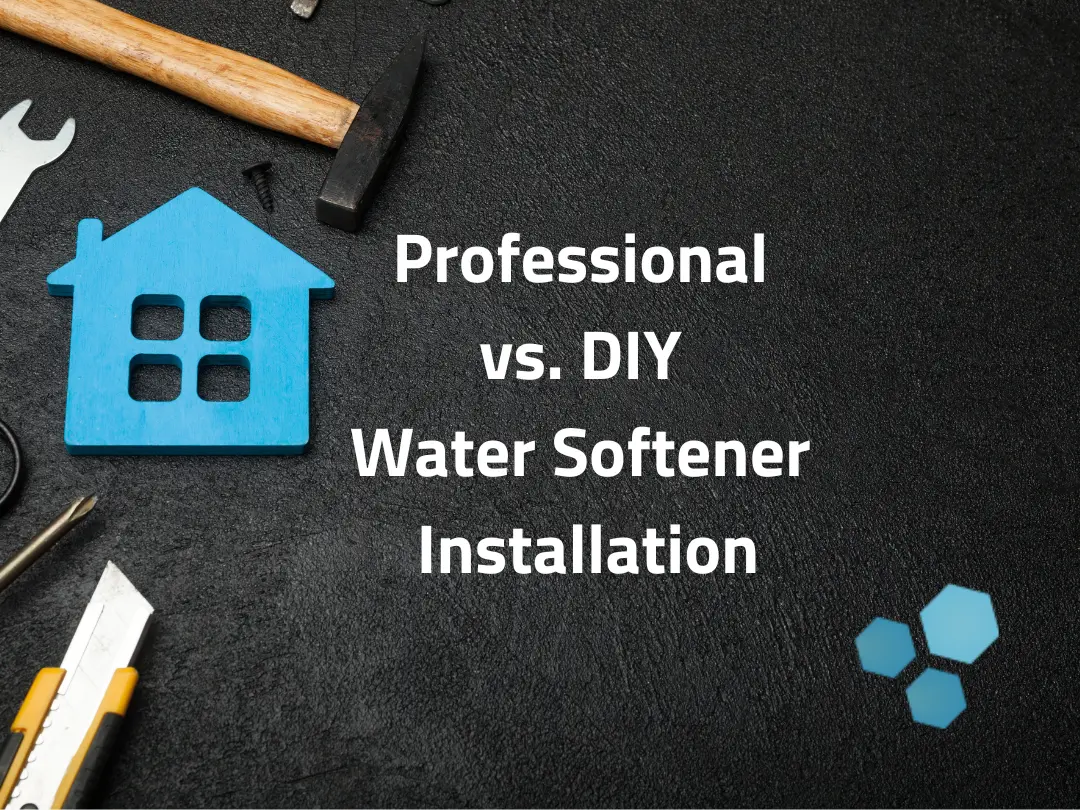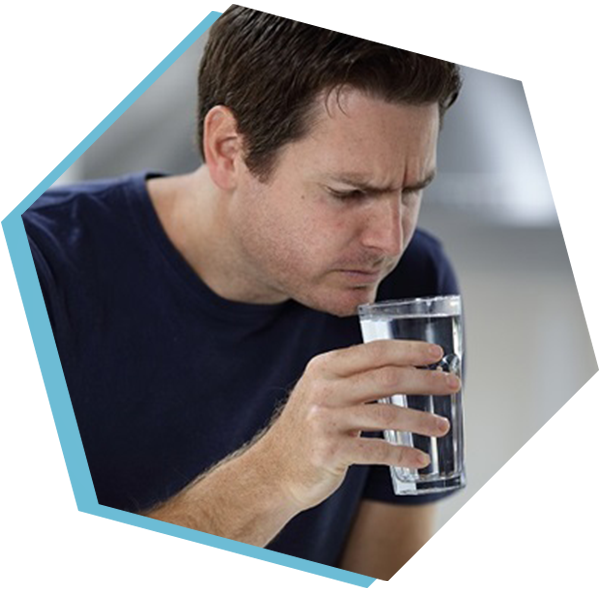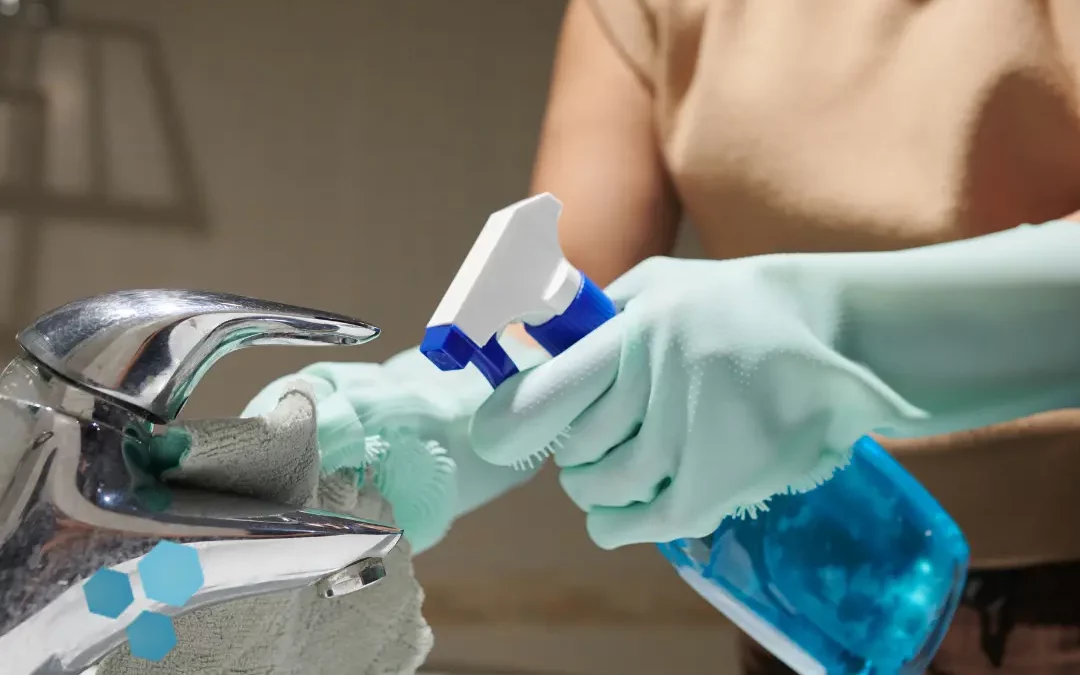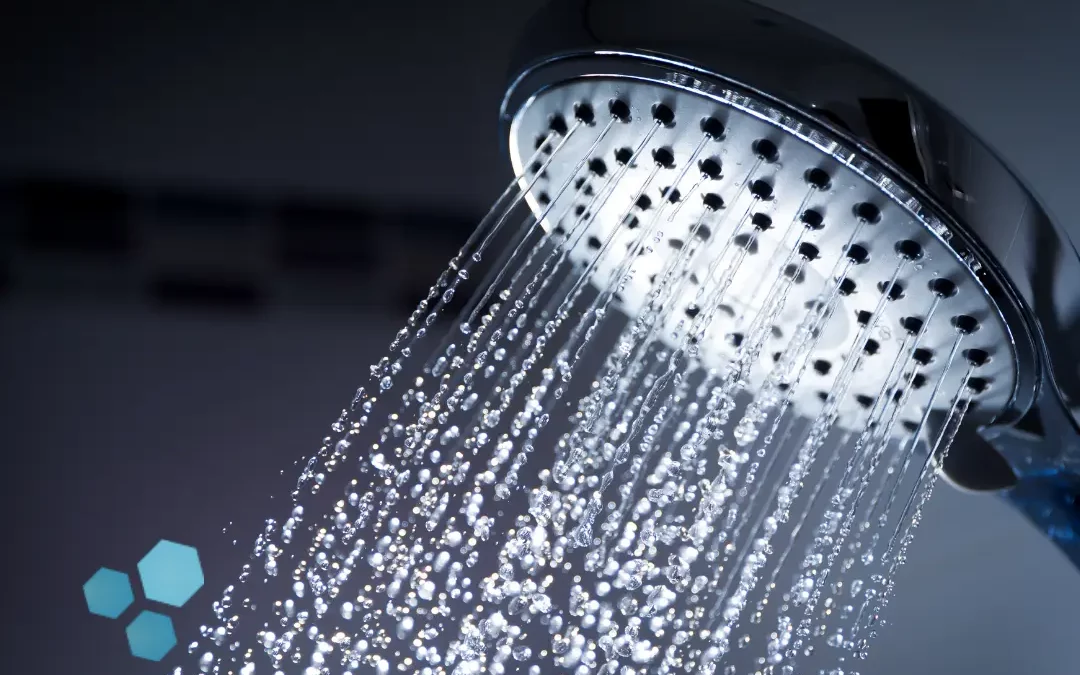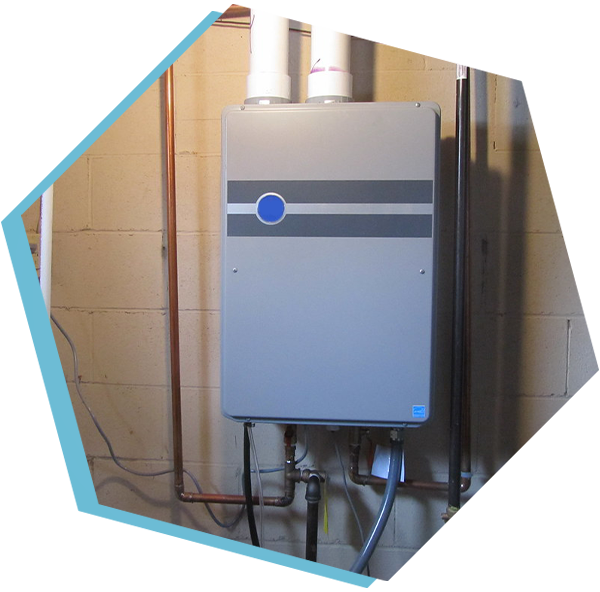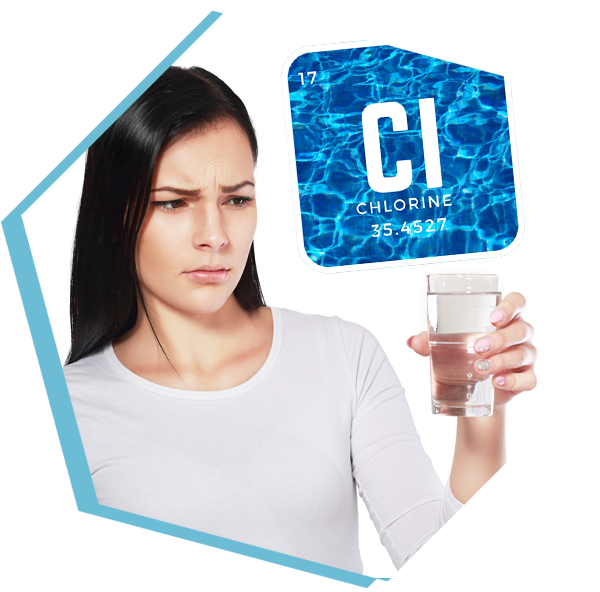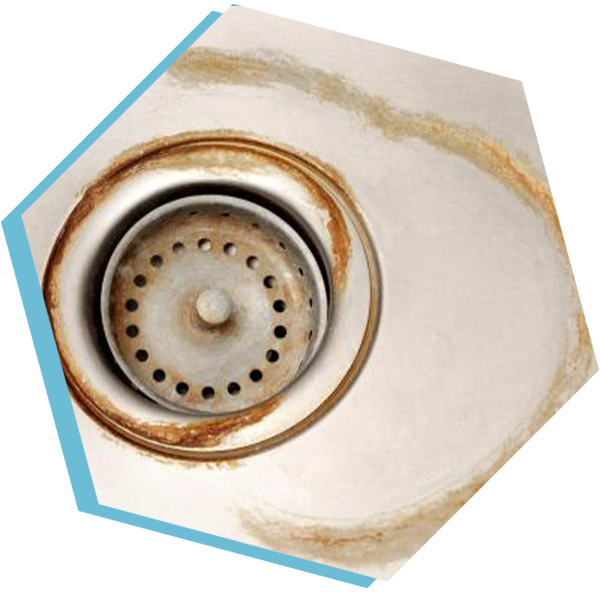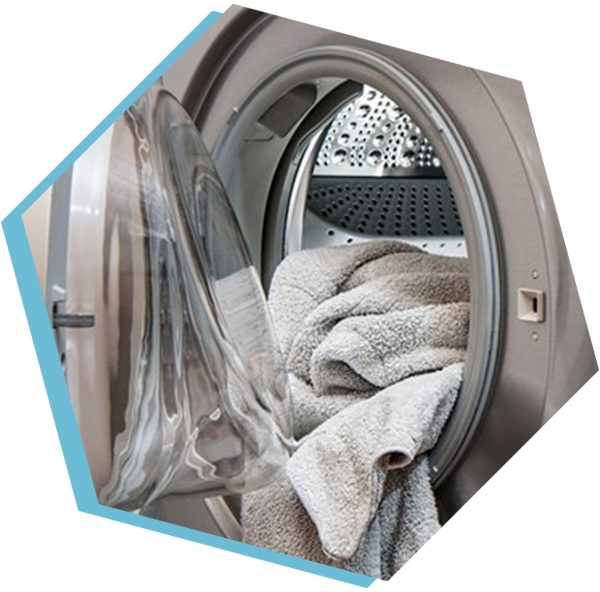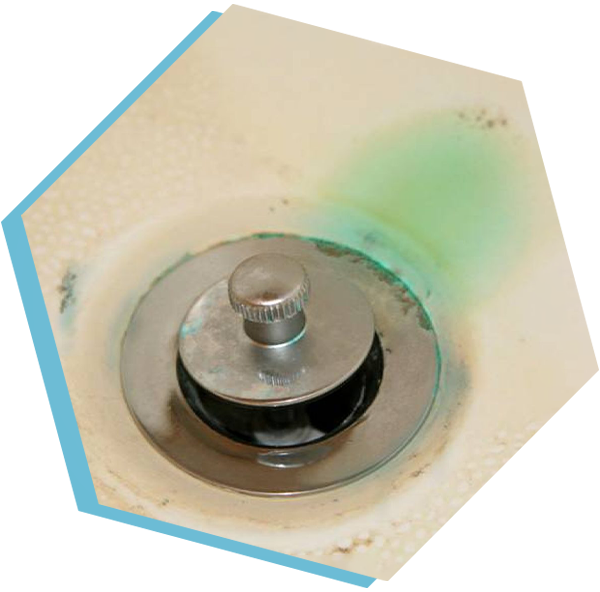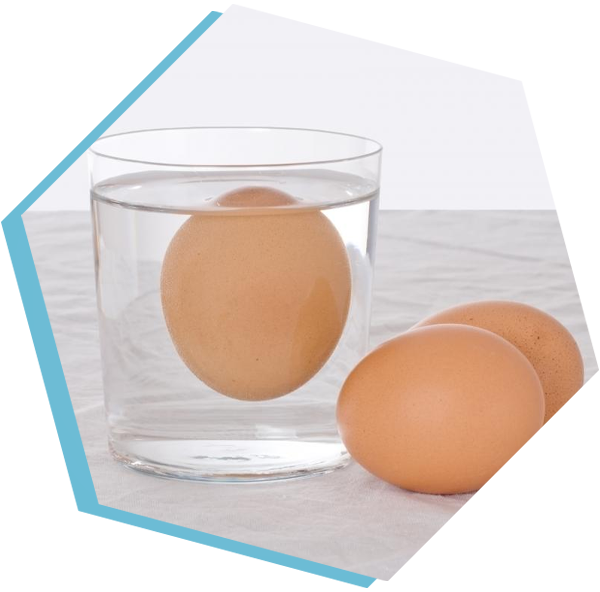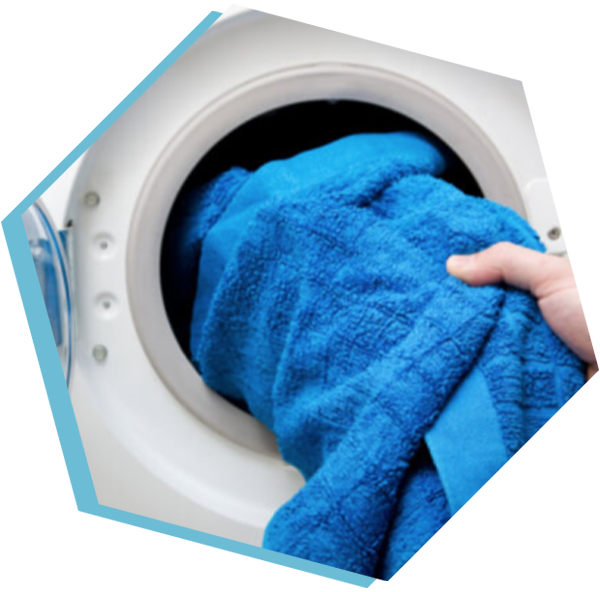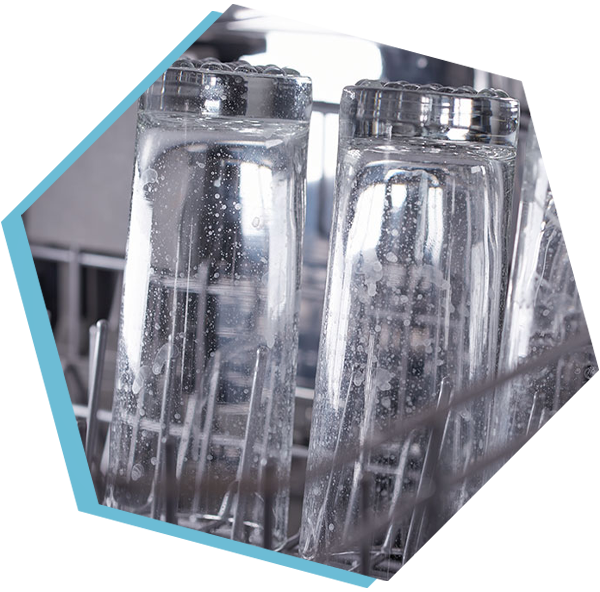Are you thinking about installing a water softener in your home? Installing a water-softening system can provide endless benefits — if you do it right! The right water softener will improve your household efficiency and save you money in the long run. It’s about more than just the good hair days and spotless dishes, you know! Softened water helps protect your home’s inner workings like the plumbing and appliances while making your daily life easier with less scrubbing and rinsing.
Before installing a water softener in your home, it’s a good idea to learn more about the process and any potential risks of going with a DIY approach.
4 Reasons to Have Your Soft Water System Professionally Installed
1. Water treatment professionals always start with a water test.
The first step to finding the right water treatment system for your home is testing your water quality. The majority of American homes have some water hardness, but you may already be aware of your hard water thanks to the spotty dishes, stiff laundry, and limescale buildup. Even if you’ve been dealing with hard water problems for a while, we recommend getting a water test for actionable results.
At Conner Water Systems, we believe that a professional evaluation and analysis of your water is key to effective water treatment — water testing is always FREE! Depending on what your water quality needs are, the water test may include either onsite field testing, certified lab analysis, or both. Water testing can evaluate hardness, total dissolved solids, chlorine, nitrates, organic contaminants, heavy metals, volatile organic compounds, and bacteria.
2. Professional water softener installation includes strategic placement.
A whole-house water softening system requires strategic placement for a successful installation. The water softener should be installed close to the main water supply entry point without compromising other utilities. The best location is generally in a basement or garage. A professional water softener installation will provide strategic placement of the system so your home gets the most out of the softening process without any risk of contaminating the hot water heater.
3. Professional water softener installation includes space and utility considerations.
In the same vein, it’s important to consider the physical space needed for a water softener. Water softeners usually consist of a “mineral tank” for the resin beads and a “brine tank” for the salt or potassium chloride. These tanks should be installed side-by-side with enough space to remain undisturbed while completing the softening process. To determine the best place for your water softener, remember you’ll need a hookup for electricity and drainage. When you choose a professional water softener installation, an expert will help you consider the available space and current utilities for the most efficient operation and maintenance.
4. Professional water softener installation includes maintenance support.
Our commitment to soft water solutions doesn’t end with installation. If you choose professional water softener installation, we guarantee a stress-free experience with a seamless transition into support services and maintenance guidance. After installation, our specialists will verify water softener performance through analytic testing and plumbing inspection. Then, we’ll set up a schedule for water softener salt replenishment. Quality water softeners — such as our Evolve line with Water Efficient Technology — actually require minimal maintenance so there’s little to worry about!
2 Key Reasons Why You May Not Want to Install a Soft Water System Yourself
1. DIY water softener installation demands some expertise.
Choosing DIY water softener installation might seem like a chance to save some coin, but it requires more than a familiarity with do-it-yourself home improvement projects and basic plumbing skills. Installing your water softener improperly can lead to bigger problems, like not meeting code requirements or contamination hazards. Before getting yourself in hot water, get the help of a trusted water treatment expert! DIY water softener installation demands some expertise and is not a suitable home improvement project for just anyone.
2. DIY water softener installation includes potential risks.
DIY water softener installation can be enticing to some handy people, but it isn’t without risk.
- Without the right knowledge and experience, you could accidentally damage your plumbing system and compromise the safety of your water supply.
- If the salt levels in the brine tank are not correct, you could end up with over-softened water that can erode your home’s pipes and cause health hazards.
- And if your water softener system isn’t up to code or you don’t have the right permits and licenses, you might be stuck with a fine!
- But that’s nothing compared to the money lost with an ineffective water softener caused by faulty installation. Don’t let a bad installation land you with hefty utility bills!
Make Soft Water a Sure Thing with Professional Water Softener Installation by Conner Water Systems
While you may be tempted to go the DIY route to save money, don’t underestimate the potential risks associated with an improper water softener installation. A professional water softener installation protects you from those risks, including legal liability, structural damage, and health issues.
Installing a water softening system in your home is an important decision that requires careful consideration of several factors like current water hardness and optimal performance location. Invest in your home’s longevity by making informed decisions about water treatment. Contact us today for a free water test! Don’t wait — make softened water a sure thing with Conner Water Systems.

